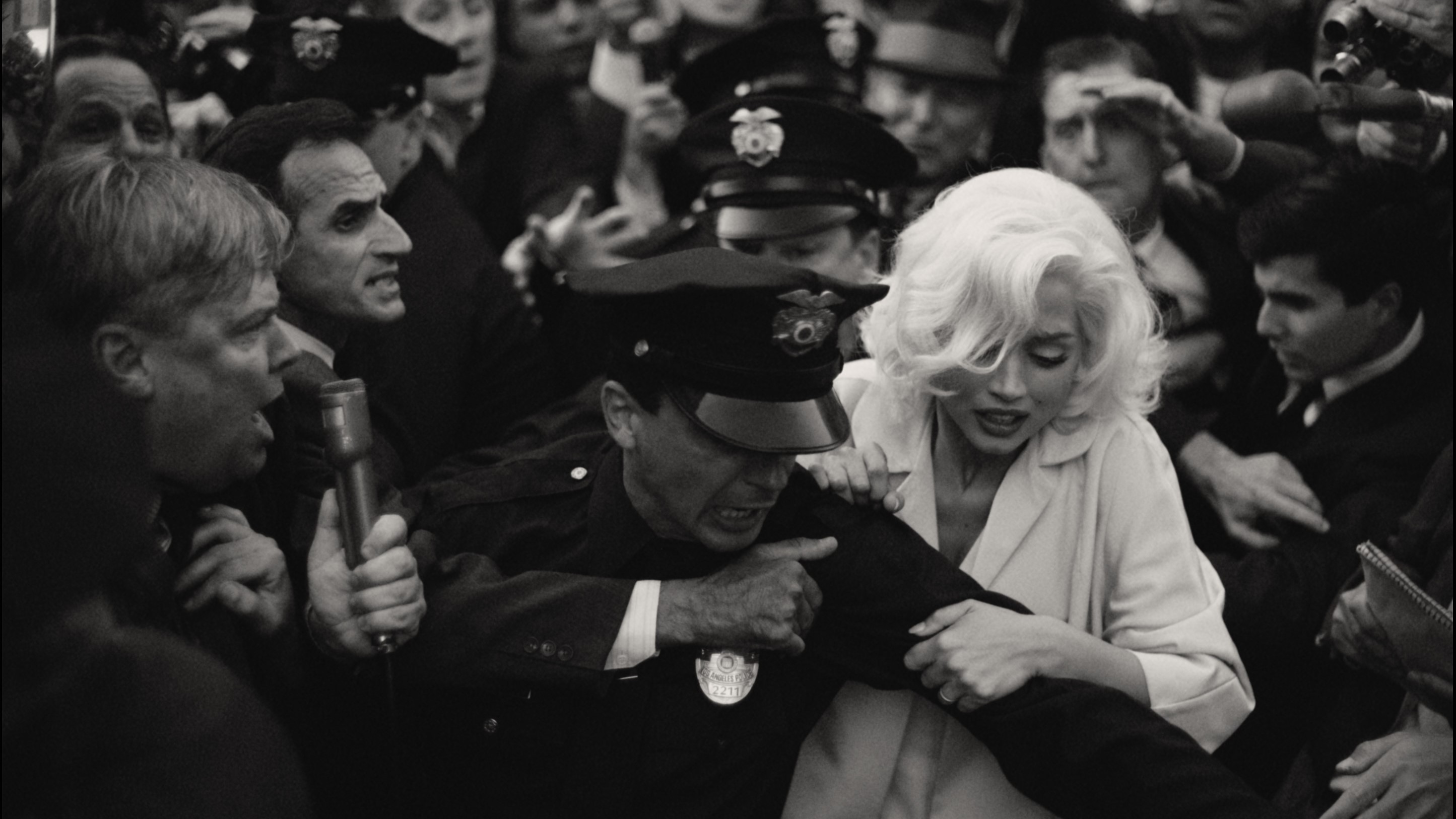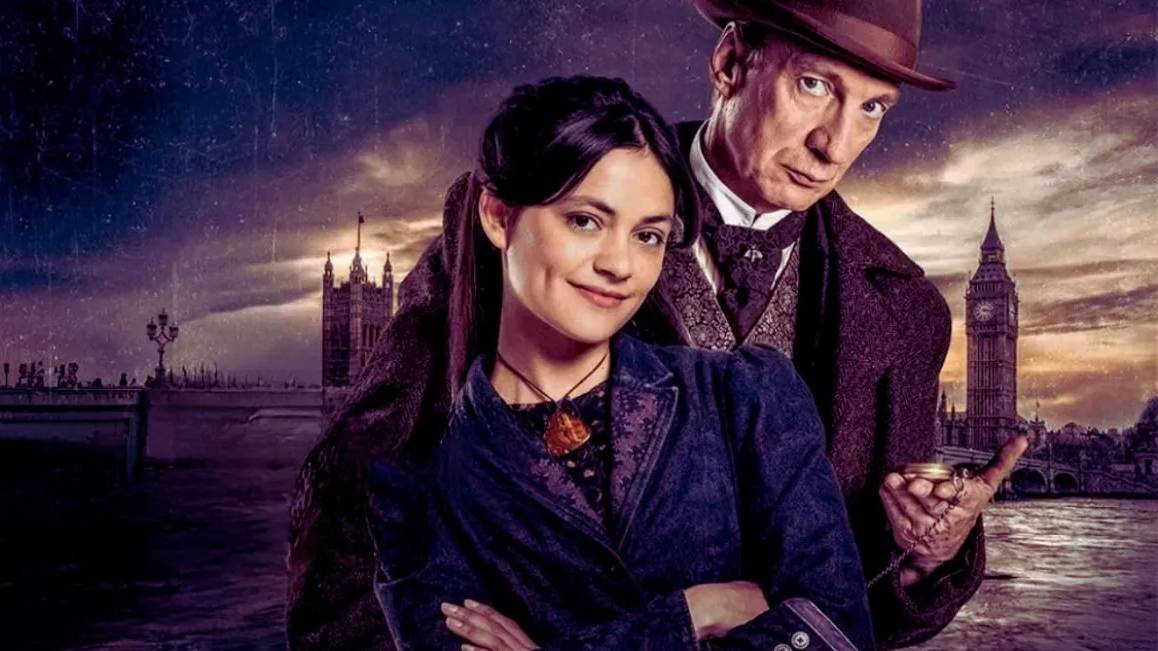What to Watch Verdict
Blonde is a big swing and a brute to watch, though it’s arguably worth it for Ana de Armas’ performance.
Pros
- +
Ana de Armas is mesmerizing as Marilyn Monroe
- +
It's gorgeous to look at
- +
Nearly three-hour runtime surprisingly doesn’t feel overlong
- +
Holds nothing back in Monroe’s tragic tale
Cons
- -
Holding nothing back makes for a very tough watch
- -
Not all the artistic choices seem to fit
One thing you cannot say about Andrew Dominik’s Marilyn Monroe biopic Blonde is that it pulls its punches. Blonde charges head first into the tragic life of Marilyn Monroe/Norma Jeane Mortenson (Baker in the movie). Here the iconic blonde bombshell is brought to the screen in a searing performance by Ana de Armas. While the ambition is on full display from all parties, the end result for Blonde is a mixed bag, though we tend to think it just about delivers.
Blonde is based on the novel by Joyce Carol Oates and is upfront about being a purely fictionalized version of the life of Marilyn Monroe. Though the movie tracks many of her most famous movie performances (Gentlemen Prefer Blondes, The Seven-Year Itch, Some Like It Hot) and romances (baseball star Joe DiMaggio and playwright Arthur Miller), the movie strives to be more about the impact that fame, celebrity and the creation of Marilyn Monroe the icon had on Norma Jeane.
The movie depicts Norma Jeane (as anyone she becomes close to calls her) as emotionally and physically ravaged by the Hollywood and celebrity culture that for many seems like a dream, but for her proved to be a fatal nightmare.
From the very beginning, Blonde refuses to shy away from tough subjects. The movie begins with a young Norma Jeane being abused by her mother (Julianne Nicholson), who is suffering from mental illness. When it jumps ahead to the early days of Marilyn Monroe starting out as an actress, it focuses on the leering attention of the studio bigwigs, including a scene where the head of a studio allegedly sexually assaults her. The movie also depicts abuse in her relationship with Joe DiMaggio (Bobby Cannavale) and President John F. Kennedy (Caspar Phillipson).
However, almost as tragic are moments when Norma Jeane appears to have happiness but can’t hold onto it. This comes via a close relationship with Charlie Chaplin Jr. (Xavier Samuel) and Edward G. Robinson Jr. (Evan Williams), as well as her marriage to playwright Arthur Miller (Adrien Brody). Unfortunately, these relationships come crumbling down as Norma Jeane loses two pregnancies.
All of this sounds incredibly bleak — because it is. Yet, thanks to Ana de Armas’ performance and the unique ways that director Andrew Dominik tells the story, Blonde is a difficult watch but not an impossible one.
First, de Armas gives her all in portraying Norma Jeane/Marilyn. From the voice to the look, she is utterly convincing as the screen legend. She plays Norma Jeane/Marilyn as a lost soul, never able to sufficiently fight back against the Hollywood complex that slowly destroys her as it raises her up. De Armas has flirted with awards before and she could very well be back in the conversation for her work in Blonde.

As for the direction, Blonde does little to hide that it is trying to be an art film with a capital "A". Dominik throws in any number of different cinematic tricks to portray Monroe’s story, too many probably. Some work well with the movie’s tragic message (the slo-mo bursts and burnout of a camera’s flash stand out), while others seem to be just the director wanting to try a new technique. For instance, while the movie is gorgeously shot, the switching between black and white and color feels rudderless; neither is directly associated with Marilyn or Norma Jean or helps signal happy vs sad moments in her life.
You have to believe that a director as talented as Dominik has a reason for all of these decisions, but whatever their designated purpose in serving the story is, it can be hard to decipher for the average viewer. That will definitely lead some to call Blonde pretentious. At the very least, you have to sit with the movie for a while before you can fully weigh how it all fits together.
We tend to lean more toward the "it does work" camp than the "does not", though there certainly were some choices that left us scratching our heads.
Blonde requires a bit extra effort from its audience, both in terms of a time commitment (nearly three hours, but engrossing enough to make it bearable) and the fact it's not an easily digestible movie. This may be an instance where streaming on Netflix — where subscribers tend to try new things compared to theater-goers paying $15 for a single movie ticket — is an advantage. At the very least, Blonde is a tour de force from de Armas and a movie that shines a different light on Marilyn Monroe — something that’ll cause a discussion for all who see it.
Blonde is now playing in select movie theaters. It debuts on Netflix worldwide on September 28.

Michael Balderston is What to Watch’s assistant managing editor and lead movie writer, covering movies coming to theaters, writing movie reviews and highlighting new and classic movies on streaming services; he also covers a range of TV shows, including those in the Taylor Sheridan universe, Slow Horses, Only Murders in the Building, Jeopardy!, Saturday Night Live and more, as well as the best ways to watch some major US sporting events.
Based outside of Washington, D.C., Michael's previous experience includes writing for Awards Circuit, TV Technology and The Wrap.
Michael’s favorite movie of all time is Casablanca, while his favorite TV show is Seinfeld. Some 2025 favorites include One of Them Days and Black Bag for movies, and The Pitt on TV. Follow on Letterboxd to keep up with what I'm watching.











